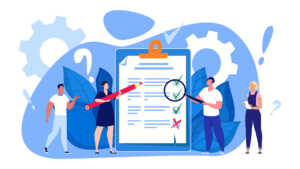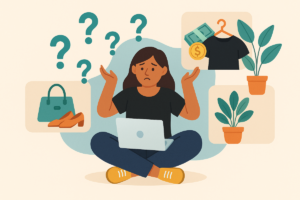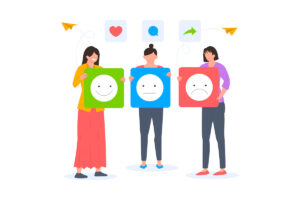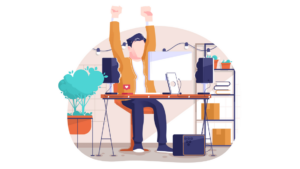We’re told that loneliness and increased isolation can, in fact, be really damaging to our physical and mental health – it’s a public health issue that can be as harmful as smoking or drinking. And apparently, we’re living through an epidemic, with more people experiencing acute isolation than ever before.
And this seems a juxtaposition for how easily ‘connected’ we’re supposed to be, with the rise of smartphones and our inter-connected, Internet-enabled world. Everyone’s an email or Whatsapp message away.
But our interactions are becoming more shallow and less fulfilled if anything; the inability to ‘switch off’ and the blurring of online and offline identities is confusing for humans to deal with. Are we substituting physical tangible relationships for something simplified, distant and virtual and making ourselves more isolated?
Arguably, solitude is a form of self-care and protection in an age of hyper-information and a digital landscape. Isolation can be harmful and it doesn’t necessarily mean there’s no one around you – it can be a reaction to situations and environments that aren’t enriching or beneficial.
Connection
We’ve never felt so lonely and yet, we’ve never been so connected. It would be too casual to suggest that it’s just technology making us feel isolated, but it’s becoming increasingly possible that it’s a contributing factor and can exacerbate existing feelings of loneliness.
Governments are starting to recognize the cost of loneliness to economies, public health, and well-being; in the UK, Theresa May has appointed the first Minister for Loneliness, which sounds like it’s been lifted straight from the pages of George Orwell’s, 1984.
Isolation and loneliness occur when we negatively react to the environments we’re in and our surroundings. You can be in a room full of people and feel completely alone – isolation is an internal feeling.
[Tweet “Solitude is about taking a break, reconnecting with basic human needs and cutting out the rest of the noise”]
And turning this on its head – you can be completely alone, with no one around you and actually feel relatively fulfilled and at ease, whether that’s because you’re satisfied with technology-based connections or you’re happier by yourself.
What’s Solitude?
Everyone’s different but one thing’s for sure, most people need to have a time-out every now and then. Whether it’s after an intense day at work or a busy weekend with the in-laws!
Periodically, we need to recharge our batteries by ourselves, so that we’ll be able to be our ‘best selves’ when we head back out into the world and interact with people. And learning how to be at peace by yourself and make a choice to do so when you recognize that you need it, is a beneficial skill and tool to possess.
Put simply, solitude is a choice to be alone.
This is some people’s default setting and they’re more comfortable being by themselves. And when solitude is a comfortable choice, isolation isn’t attached to it. Other people may objectively attach isolation to solitude, based on their own ideas and emotions, but it’s a subjective choice and solitude can be healthy.
As a society, we should be promoting the joys of solitude and encouraging people to spend time along with their thoughts and feelings. It could consist of curling up with your dog on the couch, reading a book or taking a walk and appreciating nature.
In a hyper-connected world, our digital lives and our offline responsibilities can be exhausting and overwhelming.
[Tweet “our digital lives and our offline responsibilities can be exhausting and overwhelming.”]
Solitude is about taking a break, reconnecting with basic human needs and cutting out the rest of the noise every now and then. We can even become our most creative selves when we limit distractions and have time to think and reflect.
Solitude is our way of taking back control and getting to know yourself equips you with the knowledge to live better.
What does it mean to be isolated?
Human beings are social animals. When we’re deprived of the level of contact and communication that we require, loneliness can begin to set in. Feeling lonely is like an alarm sounding – it means that we’re not happy with the surroundings that we’re in, the people we associate with or our relationships with others.
Feeling lonely leads to isolation and can be because you think you don’t belong somewhere and you’re uprooted, deserted from others.
We live in divided times that can make people feel more cut off from communities and the people around them.
It’s not solely because of new technology, but it would be naïve to think that digital communication hasn’t impacted how we live and interact with those around us. Getting out into your community and connecting tangibly can show a vastly different world than the divided one we see online – we have more in common than that which divides us.
If we’re isolated for a long time, we can start to lose a sense of who we are. How we relate to others and how they make us feel can are really important to how we build and form identities.
Confidence can be lost and it can be difficult to validate our own self-esteem without the help of a support system around us.
Taking steps to connect to people is a revolutionary act when everything around you tells you that you feel alone and isolated. Learning what alleviates your loneliness is important and opening yourself to communication and relationships is enriching.
Being at Ease with Yourself
Unwanted isolation and loneliness are feelings humans don’t like – they are negative and impact how we see ourselves and others.
Being able to recognize when you’re feeling lonely is important because it helps you to take action and find ways to feel more connected.
Solitude is a choice to be alone and to bask in the ideas and space we can create to think, reflect and enjoy the quiet.
Being alone doesn’t mean feeling lonely and we could all do with some self-reflection and time to ourselves in this crazy world! Solitude has a big part to play in a healthy lifestyle and if we can learn to be at ease with ourselves in solitude then we can reap the benefits of ‘turning off’ and unwinding.





